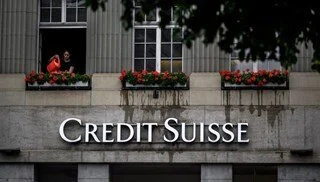A recent investigation has revealed shocking details about hidden Nazi accounts that were concealed for decades by a major bank. These accounts, which belonged to individuals associated with the Nazi regime, were reportedly kept under wraps for years, raising serious questions about financial institutions’ roles in covering up historical injustices. The investigation has shed light on the bank’s efforts to protect these accounts from scrutiny, fueling public outcry and demands for accountability.
The Discovery of Hidden Accounts
For years, there were suspicions that financial institutions had been involved in hiding assets tied to the Nazi regime. However, it wasn’t until the latest investigation that concrete evidence came to light. The bank, which has yet to be named publicly, reportedly held numerous accounts linked to high-ranking Nazi officials and collaborators. These accounts contained significant sums of money, some of which were believed to have been stolen from Jewish victims during World War II.
The discovery has been described as a major breakthrough in understanding how financial institutions may have played a part in the concealment of Nazi-era assets. These findings have led to a renewed focus on the ethical responsibility of banks and the need for greater transparency in handling sensitive historical financial records.
The Cover-Up and Its Implications
The cover-up of Nazi accounts is particularly concerning given the historical context. During and after World War II, many banks were accused of helping to hide Nazi assets, often as a way to avoid legal repercussions. The latest revelations indicate that these actions were not isolated incidents but part of a broader effort to shield these accounts from public view.
The extent of the cover-up is still being investigated, but early reports suggest that the bank engaged in deliberate actions to ensure that these accounts remained off the radar for as long as possible. This has sparked outrage among historians, human rights organizations, and the public, who view it as an attempt to erase the atrocities committed during the war.
Ethical Concerns and Accountability
The discovery of Nazi accounts raises serious ethical questions about the role of financial institutions in facilitating war crimes and human rights violations. Many of these accounts were connected to individuals responsible for some of the most horrific acts of the 20th century, and the concealment of these accounts suggests that banks may have been complicit in perpetuating these injustices.
As the investigation continues, calls for accountability are growing. Some advocates are urging for the bank to be held responsible for its role in covering up Nazi assets, while others are calling for more rigorous laws to prevent similar situations from occurring in the future. There are also demands for the funds to be returned to the rightful heirs of Holocaust victims or used for reparations.
Conclusion: A Dark Chapter in Banking History
The revelation of hidden Nazi accounts is a stark reminder of the darker side of financial history. The ongoing investigation into these accounts has brought to light the uncomfortable truth that banks may have knowingly facilitated the concealment of assets linked to war crimes. As the story unfolds, it is clear that this will be a pivotal moment in the ongoing battle for justice and accountability in the aftermath of World War II. The financial industry’s role in these dark chapters of history must be fully examined, and steps must be taken to ensure that such actions are never repeated.




